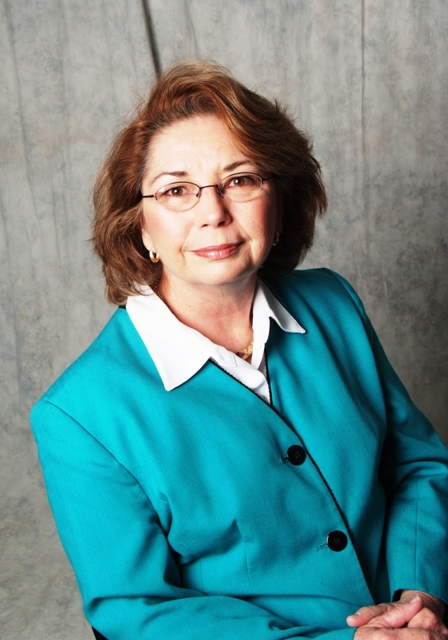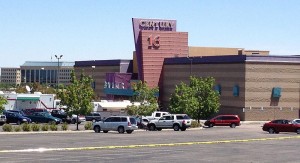In 1999, Carolyn Mears’ son was a student at Columbine High School in Colorado, where a horrifying mass shooting claimed the lives of 12 students and 1 teacher. She now serves as dissertation advisor and adjunct faculty at the University of Denver and is a member of the school’s Advisory Board of the Trauma Certification Program, and has published articles on crisis prevention and trauma recovery. Her latest book, Reclaiming School in the Aftermath of Trauma (Palgrave, 2012), offers advice from survivors of natural disaster, violence, and personal abuse. In the wake of the tragedies at the Aurora movie theater and the Oak Creek Sikh temple, we spoke with Carolyn about trauma from death and its effects on survivors of horrific events.
 Liz: How did you get into the field of trauma response and recovery?
Liz: How did you get into the field of trauma response and recovery?
Carolyn: It wasn’t something I had ever imagined doing. But then, in 1999, our son was trapped in Columbine High School during the shootings. From the effects of the shootings on him and on his friends and teachers, and on those of us who were parents and loved ones, it became clear that people didn’t really understand what we were experiencing. Unless you’ve come face to face with trauma from death like that yourself, it’s hard to understand the impact.
One of my friends and I used to take walks around the lake behind Columbine High School, and we’d talk about how people would call and offer their well-intentioned advice about what they would do, what we should be doing, and asking, “Are you over it yet?”
We’d always say that people just don’t get it. I’d heard that advice one too many times—just forget it, move on, get over it. It’s such wonderful wishful thinking, and so dear of people who want those of us who are hurting to feel better and “get back to normal,” as they would say. Yet it doesn’t happen that way. Your world has changed; your life has changed.
I decided then that if they don’t get it, it’s because no one ever told them about it. And I said, “I’m going to see what I can do about that.”
I enrolled in the doctorate program at University of Denver so I could conduct research into the aftermath of the shootings and the effects that it had on parents and families, as well as what we felt helped us with recovery and what we felt hurt and impaired recovery. I didn’t want my research to simply be a personal narrative, though, or get dismissed as just the writing of a “Columbine mom.” I wanted to do research that had rigor, that really deserved the respect and attention of decision-makers and policy-makers and folks who might be in a position to help in the future. I wanted to help not only with school shootings, but with any sort of traumatic exposure—yet Columbine was one that I had inside knowledge of, and therefore had access to people who could share their stories and be very truthful with me because they knew I understood.
I got my doctorate and did my dissertation on the experiences of Columbine parents, which won the Outstanding Qualitative Dissertation of the Year award from the American Educational Research Association. I thought after that I would just go on with my life—but it became my life! Few researchers had accessed that level of candor from participants. As a result, I am consulted and asked to help with other tragic death situations.
My book Reclaiming School in the Aftermath of Trauma is written for everyday people, not just scholars or academia. I asked people to contribute their stories, and people shared their stories with me because this was a way they could help others. Thus I’ve been privileged to share not only my own story, but also the stories and insights of others who’ve had trauma experience.
Liz: How do you define “trauma”? Is it different from grief and mourning?
Carolyn: First, I need to say that I am not a psychologist. My degree is in educational leadership and policy. So what I do is I look at experience and see what we can learn that might inform policy-makers and decision-makers about what is needed after trauma.
My operational definition of trauma is basically any experience that is perceived as life-threatening or life-challenging by the individual. It’s almost like a marker in time: there’s before the event, and there’s after. Your perception is that your world has changed by circumstance that you’re powerless to avoid. It’s that sense of sudden change, vulnerability, and powerlessness, of being a victim to circumstance: those factors combined are what cause the biological responses in the brain, which really distinguish trauma from grief.
Trauma can also be experienced vicariously by witnessing the trauma of loved ones, or a catastrophic event in which we identify with the victims.
As for the difference between the two: grief is an extremely complicated emotion and psychological effect, but with trauma there’s also a biological component in the brain. You’ve heard of the fight or flight or freeze response?
Liz: Yes, I have.
Carolyn: Your body is hard-wired for survival. What happens in trauma is your body is attempting to survive—to fight back, or to run, or to hide. The body remembers the threat and attempts to learn from it, in order to reclaim the sense of safety that was in place beforehand. So if you’re exposed to, for example, the shooting in Aurora, or an earthquake or wildfire– if your community is threatened, even if in the end no harm comes to it—the danger is perceived as threatening to all life as it was known before. It’s very disturbing and disorienting.
It’s important to remember that, while you can have grief without trauma, you won’t see trauma without accompanying grief, because you are also mourning the loss of what was before. In grief, you don’t always have that biological component, that perception of a significant loss that exists in trauma. You can mourn the loss of a loved one, but the loss may not threaten or significantly change your life.
For example, my mother died at age 91. I still feel it, and I still miss her, and there were situations when she died that were dramatic and unsettling, but they weren’t threatening. It wasn’t a sudden death. I felt grief and mourned, but it wasn’t traumatic.
In psychology, there’s a great phrase: “loss of the assumptive world.” In trauma, you lose the world you assumed you lived in. I assumed it was safe for my son to go to school on April 20, 1999. After the shootings, I could no longer assume that. Yet I needed to continue to send him to school every day, and he needed to go to school and learn. My own life wasn’t threatened—but my son’s was, and I felt I had lost the world I’d lived in.

The Century 16 Theater in Aurora, Colorado where the 2012 Aurora shooting took place, photographed the day after the shooting. (Photo credit: Wikipedia)
The people who attended the showing of Batman at the theater in Aurora assumed it was a safe thing to do. They didn’t realize they were taking their lives into their hands to go to that showing. Now, for them, those assumptions come into question. Now, adrenaline and anxiety and all those responses can be activated whenever anyone even mentions, “You wanna go to a movie tonight?”
Liz: What are typical responses in individuals who suffer a traumatic experience?
Carolyn: There is no such thing as a typical response. This is important for people to understand, especially friends and family and co-workers. Every individual experiences trauma individually and uniquely, with some people reacting outwardly, others withdrawing inward.
Some people won’t show their traumatic response for years, and they may look absolutely fine until then. They may be at a point where their life seems back in the balance; but then, they may experience a triggering event, see a video clip in a movie, read a textbook on what appears to be an unrelated event, and have their experience retriggered.
Trauma affects all of the senses—that’s part of the biological response. For example, one student at Columbine was hiding in a room where bleach had been spilled. Even now, the smell of bleach can still trigger a trauma response for him. When his life was at risk and he was threatened, it was connected to the smell of bleach.
Though we don’t all react in the same way, there are some commonly experienced traumatic responses. Physical responses include tension, increase of blood pressure, compounded heart issues, and even immune disorders. Mental effects include hypervigilance, loss of memory and ability to attend to detail, anger, confusion, disassociation, survivor’s guilt, as well as the emotional responses of grief and loss and sense of abandonment. There are different spiritual effects as well: some people question how God could let this happen, and others turn to God with gratitude for saving them. It affects everybody differently, often on a different timeframe.
Read the conclusion of this interview next Saturday, when we will discuss how friends, family, organizations, and communities can ease the process for those suffering from trauma.
Read part 2 of her interview here.
And for more information on trauma and grief:
- Read Columbine teacher Paula Reed’s blog post on PTSD in the wake of Aurora
- Read Carolyn’s Guardian blog piece on how schools can recover after a tragedy

 What are the Effects of Trauma? – An Interview with Carolyn Lunsford Mears, Part 1
What are the Effects of Trauma? – An Interview with Carolyn Lunsford Mears, Part 1



 “In Case You Don’t Live Forever” by Ben Platt
“In Case You Don’t Live Forever” by Ben Platt
 Our Monthly Tip: Make an “In Case of Death” File to Ease Loved One’s Grief
Our Monthly Tip: Make an “In Case of Death” File to Ease Loved One’s Grief
 Passing of Beloved Comedian Births a New Comedy Festival
Passing of Beloved Comedian Births a New Comedy Festival















Thanks Carolyn for an excellent interview. In the wake of reading so much in the news regarding Columbine and Aurora – you give unique true insight into how it is for those who sadly were there at the wrong moment in time. I look forward to part 2.
Report this comment
Hi Carolyn, you were in London recently at a conference where you gave a talk about the traumatic event that happened at your son’s school, and how it changed the lives of many. Your story touched me very deeply. Today on the news I heard of another school where there was tragedy and I immediately thought of you and your family. I guess you will be out there now helping other to manage. I just thought I should say, it brought me back to your story. My thoughts are with you while you carry on the brilliant work you do. Doreen.
Report this comment